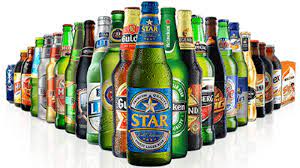Nigerian Breweries Plc – Sharpening the Cash‑Cycle Engine While Revving Up Growth

In the nine months to September 2025, Nigerian Breweries (NB) transformed a tough market into a high‑octane performance. The company didn’t just sell more – it sold smarter, pulling levers on working‑capital that trimmed the cash‑conversion cycle by a full 19 days, even as it pushed revenue up 47 % to ₦1.05 trillion. This leap was powered not just by sheer volume but also by a strategic pivot toward premium brands and price adjustments that kept the top line buoyant.
Although receivables stretched a bit – days‑sales‑outstanding edged up four days to 26 days – NB countered by stretching its payables even more. Days‑payable‑outstanding jumped 19 days from 36 days to 55 days, effectively locking in an extra 19 days of free financing. Inventory efficiency also nudged forward, with stock now sitting on the shelf for 131 days, down from 135 days a year ago, shaving off four days of warehouse dwell time. The net effect is a cash‑conversion cycle that collapsed to 102 days from 121 days in 2024 – a 15 % improvement that frees up cash for reinvestment.
The tighter cash cycle, however, did not translate into a healthier current ratio; it slipped because NB leaned on a ₦3.7 billion bank overdraft, a new short‑term facility absent in 2024. Yet the debt profile tells a brighter story. By vanquishing term loans, the company lowered overall financial leverage, making the balance sheet more attractive to equity investors.
Capital spending surged to ₦9.62 billion, up from ₦1.2 billion the previous year, signaling a clear commitment to upgrade the Ogba and Benin breweries. Chairman Mrs. J.C Anammah noted that these upgrades will boost capacity and efficiency, positioning NB to capture a larger slice of Nigeria’s growing beer and ready‑to‑drink market.
Revenue growth, combined with an expanded gross margin (nearly 40 % vs 30 % in 2024), propelled operating profit from ₦29 billion to ₦163 billion – a 461 % jump. Net finance expense fell 85 %, reflecting the debt‑paydown, and the bottom line flipped from a ₦149 billion loss in 2024 to a ₦85 billion profit in 2025. Earnings per share swung to 275 kobo, a stark contrast to the ‑1,455 kobo loss a year earlier.
While the current data set doesn’t list specific awards, NB’s track record of international quality recognitions – think Monde Selection Gold Awards and ISO 22000 certification – continues to reinforce its premium brand positioning. Those accolades feed into the premiumisation strategy, helping justify higher prices and sustaining margin growth.
In conclusion, Nigerian Breweries has turned a rough competitive space into a runway for growth, with revenue crossing the trillion‑naira mark, margins expanding, finance costs collapsing, and the cash cycle tightening – all while the company invests heavily in future capacity. The challenge now is to sustain the cash‑flow momentum and manage the higher working‑capital demands that come with rapid expansion. If NB keeps the operational levers pulling in the same direction, the outlook remains bullish, and investors may soon see the company’s share price reflect the underlying strength of its fundamentals.




